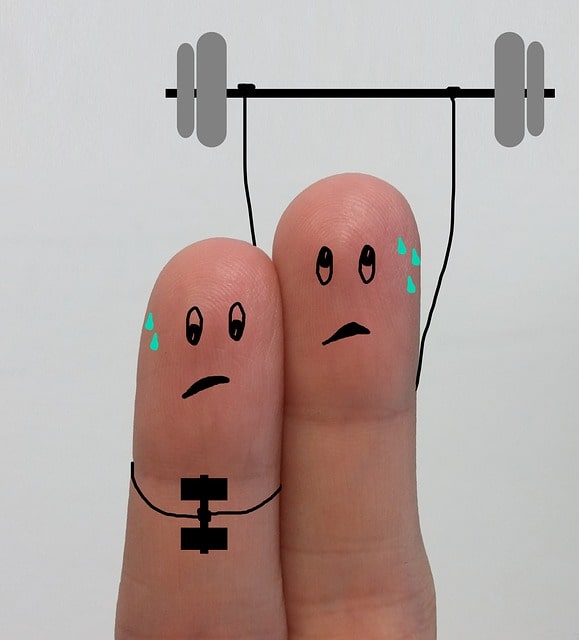Subbing for another musician can be a great way to make an income and create new opportunities for yourself. You get to play with, and for people that you previously haven’t had the pleasure to work with. It might even be your shot at entering a whole new scene which comes with better wages, better musicians, and other benefits.
However, subbing is also a lot of work and can be pretty nerve wrecking depending on the occasion. This article contains everything you need to know and consider when subbing for another musician.
Preparation for a substitute gig
First let’s discuss learning the parts. Before learning the parts I always try to consider what my liberties are. With liberties I refer to how much musical wiggle room I have inside the band.
Sometimes you will get hired because they like your style and want you to add to their music. Other times however you are called because the band/artist needs someone who sounds like the regular guy.
I always try to figure out what is required of me. Be sure to ask the band and especially the artist what they are looking for. I’ve worked with artists who actually enjoy playing with a sub who adds their take to the songs, but I’ve also worked with artists who get very nervous knowing their regular player won’t be playing the show.
For the latter I prefer to keep the parts and sound as original as possible. My main concern is making the artist/band sound good. Making the artist feel at ease by supplying a service that they are familiar with will do that.
Besides making sure you play the parts like the artist wants to, also try and consider bringing the right sound and thus the right gear to the gig.
What you can expect when you’re subbing in a band
When it comes to receiving the songs you can expect almost anything. I’ve done sessions where I just get a live recording and have to transcribe and memorize it all, but I’ve also done sessions where I had great sheet music handed to me.
Sometimes there is a rehearsal but a lot of the times it’s just learning the songs, getting on stage and kicking butt.
Memorizing the parts or reading on stage
In a lot of situations you can get away with reading sheet music on stage. In other situations however, you are expected to be front stage with the other band members and the artist. If your job is not only to play bass but also interact with the crowd and put on a show, you probably shouldn’t be staring at your iPad the entire night. Always make sure to check what is expected of you.
Memorizing parts note for note is very time consuming and it will take a lot more time than just transcribing the parts once and then reading them. When learning a repertoire for a band I always divide the material in smaller chunks.
For example, when I have to learn 15 songs, I’ll plan three sessions for myself where I focus on 5 songs at a time. I first play and listen through the songs and once I get a feel for the overall form and harmony I focus on individual parts and nuances. Only after I’ve had all three sessions and am content with my level, I focus on doing a play-through of the whole set list. Preferably in the order it’s played during the actual show.
When it’s hard for you to remember song titles you can add little clues to your setlist like “The funky tune in A minor” or “Bombastic synth tune about ducks”. Because which band doesn’t have a song about ducks?
If you want to learn more about learning a setlist check out Learning basslines, easy guide to remembering songs fast.
Your attitude as a substitute
As a musician but especially in cases like these you are hired to be a problem solver. That means you shouldn’t be a diva. Try to go into situations like these with an overall cool and relaxed attitude. Even when stuff doesn’t go the way you would like it to, or don’t feel as relaxed as you seem.
Be open and communicative. Be on time or preferably early and try to feel the energy in the room. As a musician we are emotional creatures so I’m sure most of us can do this.
When the artist wants to change the key of a song at the last minute or asks you to change anything in any way, only freak out inside. If it’s absolutely impossible to do, of course you should make the artist aware without being too harsh, but If it isn’t, say “okay”, and freak out privately. You’ve got this. It’s not your first rodeo and everything you’ve done up until this point ensures you can do this too.
Another big thing that you should consider is boundaries. It’s easy to get star struck and ask the artist to take a selfie with you, or let them know how cool you are by telling them everything about your life. Don’t forget they are just humans like you.
They might feel nervous before a show, or want some peace before they perform. Respect their alone time and treat them like you would any other human being.
Working in the right scene
I rarely speak to musicians who aren’t looking for more work. But being too eager and focusing on the wrong scene can hurt you in the long run. Let me explain.
When you sub for bands in a certain genre you are investing into that particular scene. Meaning, if you aren’t really into the type of music and are just subbing in a certain band with the hopes of being able to sub somewhere else, it will probably not work out right.
Subbing for a certain artist will most of the time get you more gigs for the same or similar artists. So if it’s a scene where you don’t want to operate in, consider not investing in that scene at all.
Although it might feel counterintuitive it’s okay to say no when something doesn’t excite you.
We all move slowly towards the place we are supposed to go. It’s cool to take a detour sometimes, but it’s important not to get distracted and find out your on the wrong highway when you’re already too far down the road.
Are you the right musician for the job?
Another thing to consider is, if you are capable enough of doing the gig. Even when something does excite you, it’s very well possible you don’t have the capabilities (yet) to do the gig. When the gig requires you to play with a pick or take crazy bebop solos but you aren’t able to do any of those things, you’re better of saying no.
If you make a bad impression by not performing well this can affect the image people have and spread about you. Know your strengths and your weaknesses and work on them accordingly.

Some notes about personality
I also want to touch on the topic of personality because this is something that is overlooked a lot in session playing. Throughout out musical careers we develop our own sound and personality in music whether we are aware of it or not.
We play and move on stage in a way that we think is right. And that is something that differentiates us from other players. Some people will like what you do and some people won’t, just with anything in life.
There are times when you do a session gig when people are not happy with the musical liberties you take or the way you fit in the picture. And although we all have some leeway in which we can adapt to fit better inside the band, we should always be aware of how far we want to go in this.
It’s a hard balance, but it’s important not to lose sight of who you. Respect your core values and see the things that make you unique as your strengths. You are definitely allowed to have and show your own personality in music and on stage. Even when you are hired to replace someone else.
Decide how much you can adapt to fit inside a band and still feel good about what your doing. Don’t be afraid to set boundaries. Session playing is not only about pleasing someone, but also about still feeling good about what you are doing. Never make the lengths you go into pleasing somebody take away your pleasure in making music.
Is the subbing job worth it?
The last thing I want you to consider when subbing for someone is asking yourself if it’s worth it. This can mean a lot of things. Sometimes when you just need the money, a good payday can make something worth it. But there are a lot of other variables to consider.
For example: Does this gig help me to further my career? Will this job help me to get more work in the future? Do I gain anything else than just the money?
Anything else can vary from important new contacts, to musical satisfaction to expanding your fan base or building a strong relationship with the bass player you are subbing for.
Can I be myself at this gig?
Does the time I invest in this job is worth what it brings me? If the answer is yes, do it! And if the answer is no, then it probably isn’t what you need to be doing right now.
Some other sources of good information
https://www.travisraab.com/the-unwritten-rules-of-subbing-for-musicians.html
https://www.unstarvingmusician.com/subbing-for-other-musicians/
I hope you enjoyed this article. Let me know what you think in the comments, and please share your own experiences. You might also enjoy my post What makes a good bass player?

